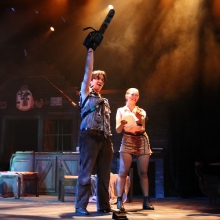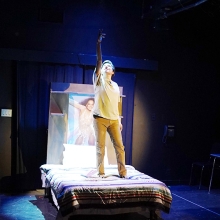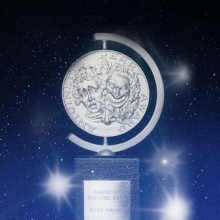Filichia Features: A New Stephen Schwartz Stage Show
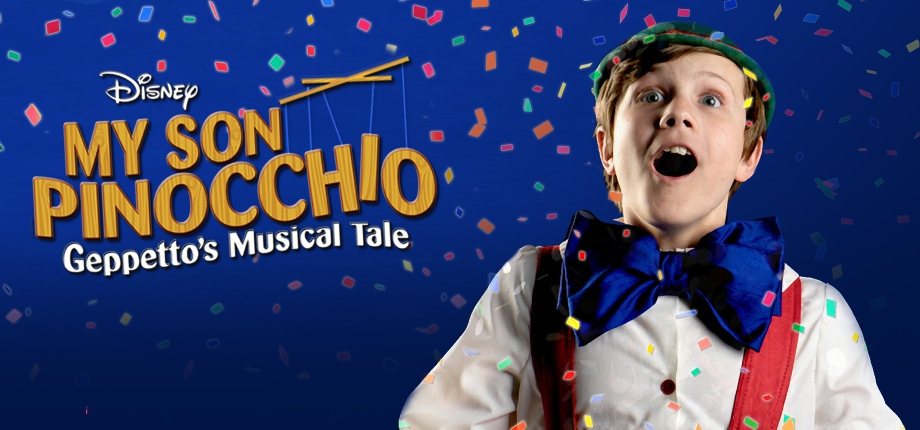
Filichia Features: A New Stephen Schwartz Stage Show
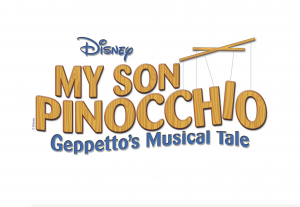
Tens of thousands of young actresses are waiting to play Glinda in Wicked.
But Wicked is, to cite one of Stephen Schwartz's best songs from the show, "Popular." So to all you would-be Glindas, we must quote another fine Schwartz song (albeit from Godspell): "Alas, for you."
Although Wicked opened even before Mark Zuckerberg started Facebook, it still remains one of Broadway's hottest tickets. As a result, a decade or more may pass before any community or school theater is allowed to do this alternate-universe Wizard of Oz.
So some actresses who are hoping to play The Good Witch of the South will find their hopes going south. By the time the show is released to the marketplace, these performers may be more right for a different Schwartz character: Pippin's sixty-six year old grandmother Berthe.
For those actresses who prefer not to wait, there's a very similar role to Glinda in yet another show for which Schwartz provided the score: Disney's My Son Pinocchio - the new version of the 2000 TV movie musical Geppetto.
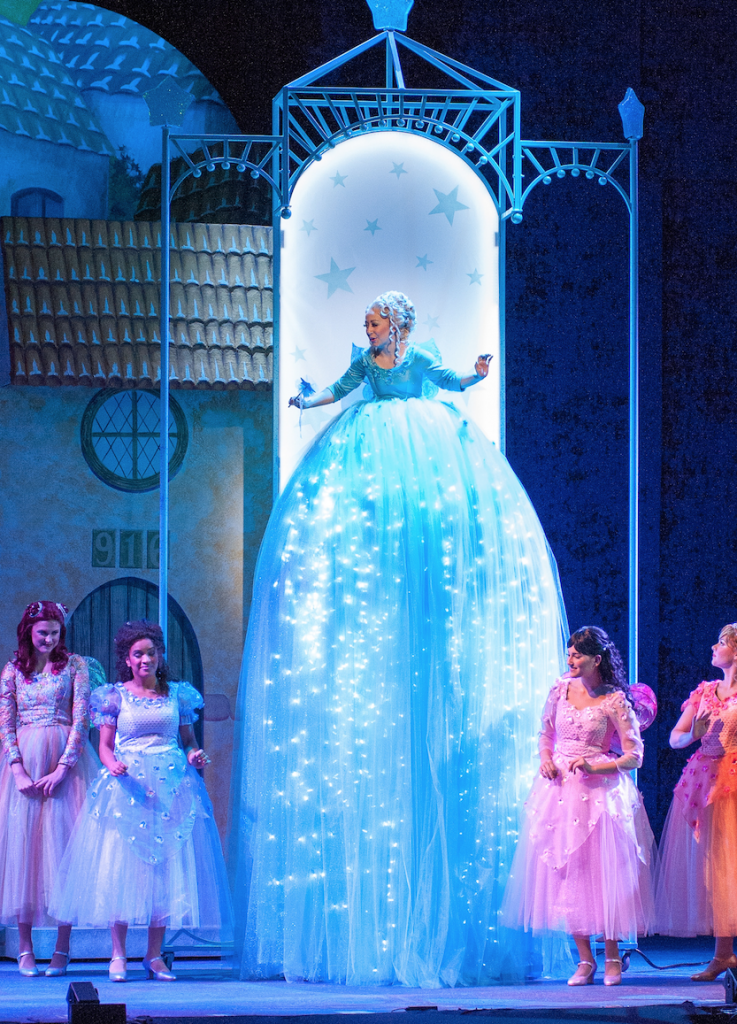
Emily Vargo as the Blue Fairy and cast in Disney's My Son Pinocchio: Gepetto's Musical Tale at Music Theatre Wichita (Photo © Jerry Fritchman).
The leading lady is The Blue Fairy. She could be seen as a second cousin to Glinda considering the way that Schwartz treated her in song and bookwriter David I. Stern handled her in dialogue. After all, one of her first lines is "I know you came here to celebrate the wonder that is me" directed to the audience. She adds a sweet smile but she still displays an ego that's the size of Rhode Island. (No, Little Rhody isn't a big state, but an ego that equates to 1,212 square miles certainly is.) Even Mary Poppins will concede that she's only "practically perfect" but The Blue Fairy crows "I have a perfect track record" in making people happy by making their wishes come true.
In Wayne Bryan's recent (and excellent) production at Music Theatre Wichita, Emily Vargo literally had a tall order to fill - for The Blue Fairy was initially shown to be about 15 feet tall. Vargo was positioned high above the action atop a baby blue-colored "dress" that seemed as wide as the Rockefeller Center Christmas tree.
Such an encumbrance didn't keep Vargo from doing a glorious rendition of "When You Wish upon a Star," one of the show's two interpolations from the original 1940 Disney animated film Pinocchio. After that tender ballad, the audience applauded with delightful surprise when The Blue Fairy literally came out of her dress. Don't worry; she was wearing a standard issue taffeta item on her five-foot-or-so frame. What prompted the applause was Vargo's sliding down a gold pole as if she were a firefighter.
She must cope with a metaphorical fire in a surprisingly unsentimental twist: The Blue Fairy had granted Geppetto's wish to have a son - that's Pinocchio, of course -- but now Geppetto is dissatisfied with the lad and wants her to take him back.
The old man complains that the boy "can't follow the simplest of rules, embarrasses me in front of my neighbors and has no interest in the family business." Then comes a flashback in which we see how this frustrated father reached this conclusion.
Geppetto is the male lead, which is a rarity for the character man who's endured a lifetime of small roles and walk-ons. Here an elderly, gray-haired, bespectacled character takes center stage thanks to an actor who's on-stage almost all night long. In Wichita, Nicholas F. Saverine thoroughly conquered the challenge with a tender demeanor and a terrific voice.
You'll recall that Geppetto is a toymaker, so his shop is always filled with kids and parents. In Schwartz's purposely frenetic "Toys," young children beg their mothers and fathers to buy the gifts they want. The annoyed parents give reasons why they shouldn't have them -- or at least why they won't purchase them.
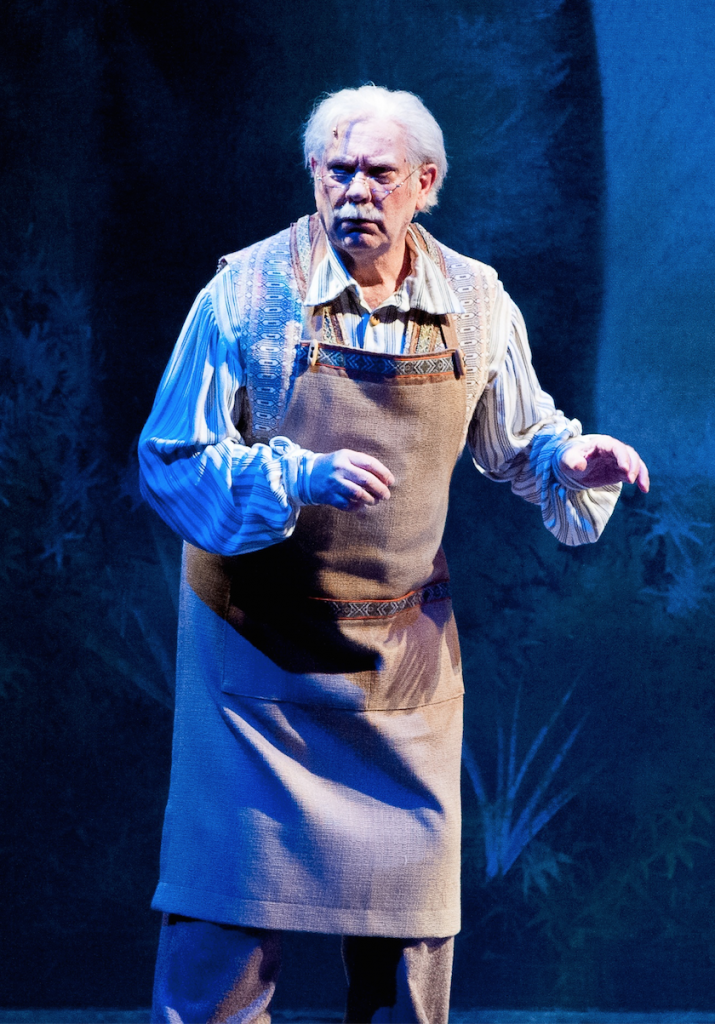
Nicholas F. Saverine as Gepetto in Disney's My Son Pinocchio: Gepetto's Musical Tale at Music Theatre Wichita (Photo © Jerry Fritchman).
The adults' attitude depresses Geppetto, who sings "Why is it the people who have children shouldn't have children?" How he wishes he could have a son! In "Empty Heart," Schwartz has Geppetto reiterate his title with a particularly lovely line: "I know my heart is large; that's why it feels so empty."
After Geppetto wonders "Is it too late for life to start?" The Blue Fairy confidently comes in "to bring Pinocchio to life for his lonely father." But remember the strange type of challenge grant she gives? Although Pinocchio is more than a puppet in that he's alive, he's less than a boy, because he's made of wood. He'll have to go some to earn full humanity.
As is the sad case with so many parents, Geppetto immediately expects his child to be flawless. "Be like other boys," Geppetto urges, which Pinocchio takes literally. Soon his teacher expels him for mimicking the other students, which was simply Pinocchio's way of trying to fit in. Geppetto isn't happy to hear the teacher say in great judgment "Why is it the people who have children shouldn't have children?" When it comes to parenting, everybody's a critic.
The biggest conflict - one known to many families - involves what Pinocchio wants to be when he grows up. Schwartz's "Geppetto and Son" makes clear where the father stands; he sees a lifetime of working next to his heir. "But I don't want to be a toymaker," Pinocchio says, only to hear Geppetto rebut with a very (if inadvertent) condescending "Of course you do. You just don't know it yet."
Geppetto's hardly the first parent to insensitively tell a son that he doesn't know his own mind. Granted, Pinocchio's occupation of choice -- "I want to be a train engineer!" - is one that kids often choose in the blush of youth and then discard as time passes by. Nevertheless, a tot's goals shouldn't be pooh-poohed, no matter how unlikely they seem to be. Treating a child with the utmost respect should be one of a parent's full-time job.
So we have another son who runs away from home because he senses his father's disappointed in him. Moral of the story? Parents, be careful what you say to your kids. Who knows how many runaways have felt this same type of disenchantment from their fathers (and/or, of course, mothers)?
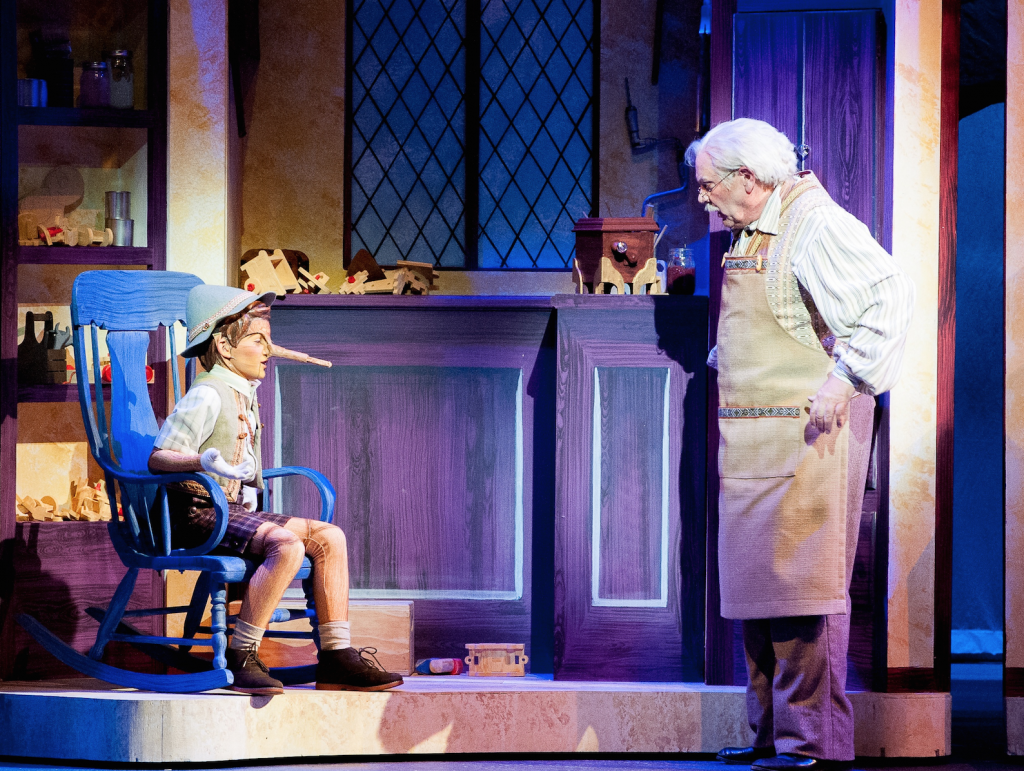
Topher Cundith as Pinocchio and Nicholas F. Saverine as Gepetto in Disney's My Son Pinocchio: Gepetto's Musical Tale at Music Theatre Wichita (Photo © Jerry Fritchman).
Like so many runaways before and after him, Pinocchio hooks up with a bad influence: Stromboli, who owns a carny show, needs a new act and sees "a stringless puppet" as a delicious meal ticket. He puts Pinocchio on-stage where he sings (his trademark song from the 1940 film) "I've Got No Strings" as stringed marionettes do backup. Note that "I've Got No Strings" has a double meaning, for "strings" also means "obligations." At the moment, Pinocchio has none, but he'll soon wish he had. (And what a wonder was Topher Cundith in singing, dancing and acting - here's a compliment - wooden.)
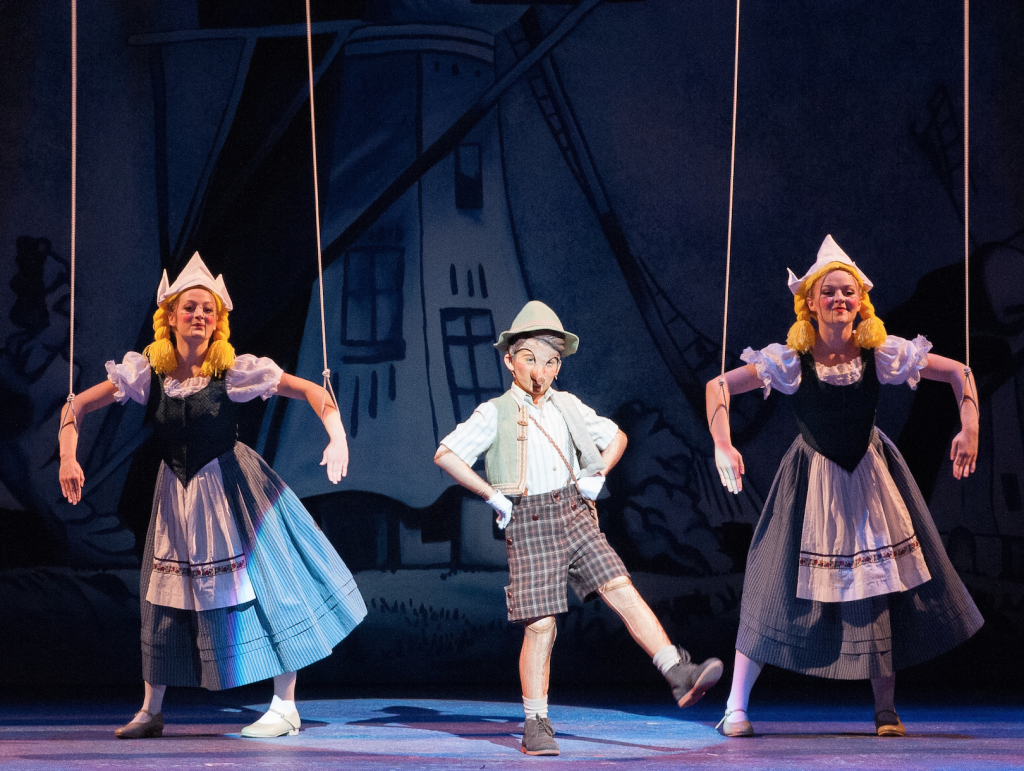
Topher Cundith as Pinocchio and cast in Disney's My Son Pinocchio: Gepetto's Musical Tale at Music Theatre Wichita (Photo © Jerry Fritchman).
Meanwhile, Geppetto runs into Professor Buonragazzo, who's made a "child-making" machine that turns out "perfect" children. (Your crew should come up with some kind of big box that has, if not bells and whistles, at least lights). "You'll have a new Pinocchio faster than you can say 'Jiminy Cricket!'" Buonragazzo proclaims, giving a nice little in-joke. (Steve Hitchcock enjoyed it, too, and gave the audience a knowing look.)
Geppetto is offered one perfect kid after another. They're all very nice, but they're not Pinocchio. The devilish kid you love has it all over the angelic you don't. Despite a celebratory tarantella (that choreographer Amy Baker Schwiethale staged nicely), Gepetto comes to the conclusion "I don't want Pinocchio to be perfect! I just wanted him to behave!"
He's getting closer to learning his lesson. The light bulb finally goes off when he meets a pig who prefers to be a dog, a lamb who quacks and a fox who gives milk. (You'll need full headpieces for your actors.) "Why are all the animals here pretending to be something they're not?" says Geppetto -- just before he realizes that he's been expecting Pinocchio to be something he's not, too. Now Geppetto finally understands that "Parents should let their children grow up to be themselves - no matter what they turn out to be."
The Blue Fairy is thrilled to hear that revelation. "I swear I had nothing to do with that!" she exclaims. "He came to that all on his own - no magic!" Here's a story in which a child learns a good deal - not to trust strangers -- but the adult ultimately learns more. My Son Pinocchio may resemble a children's musical, but parents will come away realizing complaining their kids have "no common sense" isn't fair; such sense isn't common at all, and only comes from life experiences. This occurs to Geppetto when he's bullied on so-called Pleasure Island and blurts out "No one knows the rules on the first day!"
Geppetto straightens out and comes to appreciate his son. "Until you give your heart away," Geppetto sings in Schwartz's tear-inducing final song, "you might as well be made of wood." And Pinocchio is promoted to humanity.
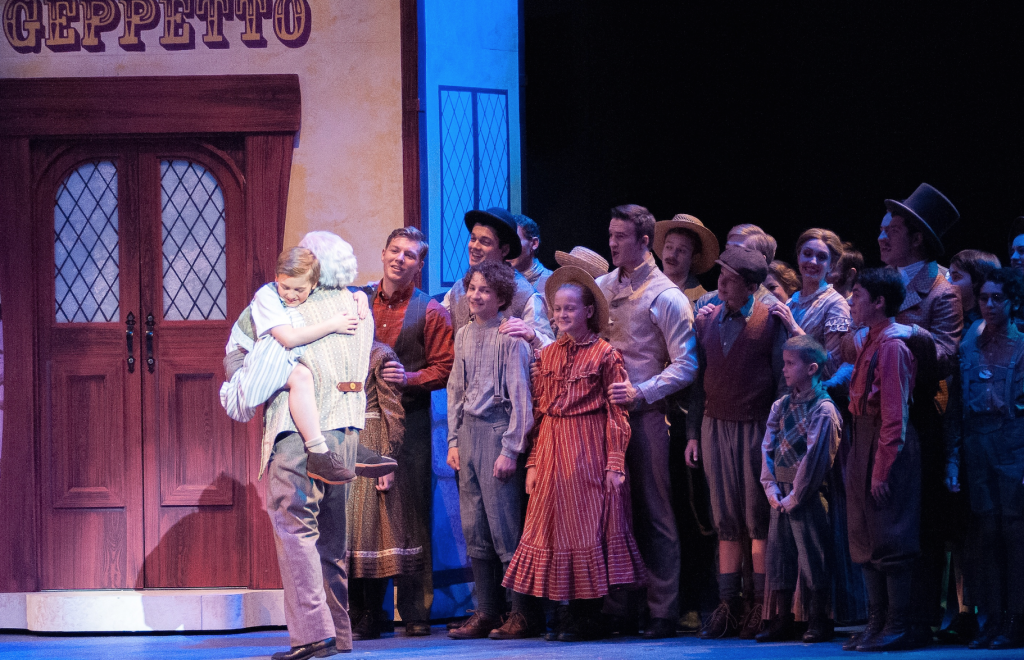
The cast of Disney's My Son Pinocchio: Gepetto's Musical Tale at Music Theatre Wichita (© Photo Jerry Fritchman).
Advice for your production? Make certain that you give your staff enough time to create a child-sized Pinocchio puppet. After all, you won't know whom he should resemble until you cast your actor.
Stromboli can be a great part for a ventriloquist, for he talks to hand puppets who respond. You can of course cast an actor who merely speaks his puppets' dialogue without any attempt at making them seem real, but a ventriloquist offers the possibility for quite the coup de théâtre. At the very least, Stromboli should have a strong singing voice for his big song which is essentially a minor-league version of Figaro's aria in The Barber of Seville. (The song is called "Bravo, Stromboli" and that exactly what the audience felt about Shaun-Michael Morse.)
There's another good role among Blue Fairy's four Fairies-in-Waiting. Although three are dutiful, Sue is insouciant. The no-nonsense lass isn't above slamming cymbals right at Geppetto's ear during a crossover-song. She doesn't want to be called "a girl" but demands a more mature title. And what does she believe the moral of this story to be? "Never grant a wish to a moron!" (Katie Barna smartly made her long-suffering but not annoying.)
Disney's My Son Pinocchio comes up with the occasional anachronistic phrase; certainly Geppetto in the 1940 film didn't snarl "You're grounded!" Stern offers some quick gags, too. (Pinocchio: "I slept like a log." Geppetto: "You are a log.") There's even a ribald inside joke that kids may not get, but adults will, when Geppetto grouses about The Blue Fairy "She doesn't know a wish from Shinola."
Perhaps she doesn't, but any girl who's studied Glinda for any length of time will know how to play The Blue Fairy.
You may e-mail Peter at pfilichia@aol.com. Check out his weekly column each Monday at www.broadwayselect.com, Tuesday at www.masterworksbroadway.com and Friday atwww.kritzerland.com. His bookThe Great Parade: Broadway's Astonishing, Never-To-Be Forgotten 1963-1964 Season is now available at www.amazon.com.
Share
Callboard
-
Shake and shimmy it with the #Hairspray20Challenge! Join MTI and Broadway Media in celebrating 20 years of #Hairspray. Duet this here or find us on TikTok! Special thanks to @broadwaymedia and @jammyprod. Choreography Guides are a licensor official resource that provides step-by-step instruction from Broadway and professional choreographers for your productions! Visit @broadwaymedia to learn more. #mtishows #youcantstopthebeat #hairspraymusical #goodmorningbaltimore
View on Instagram

















